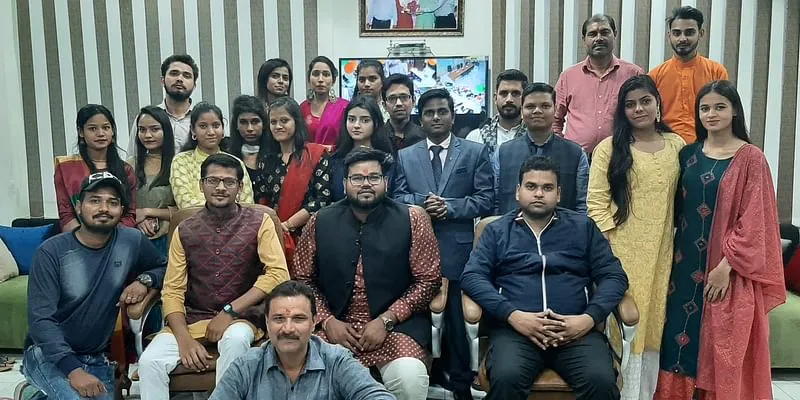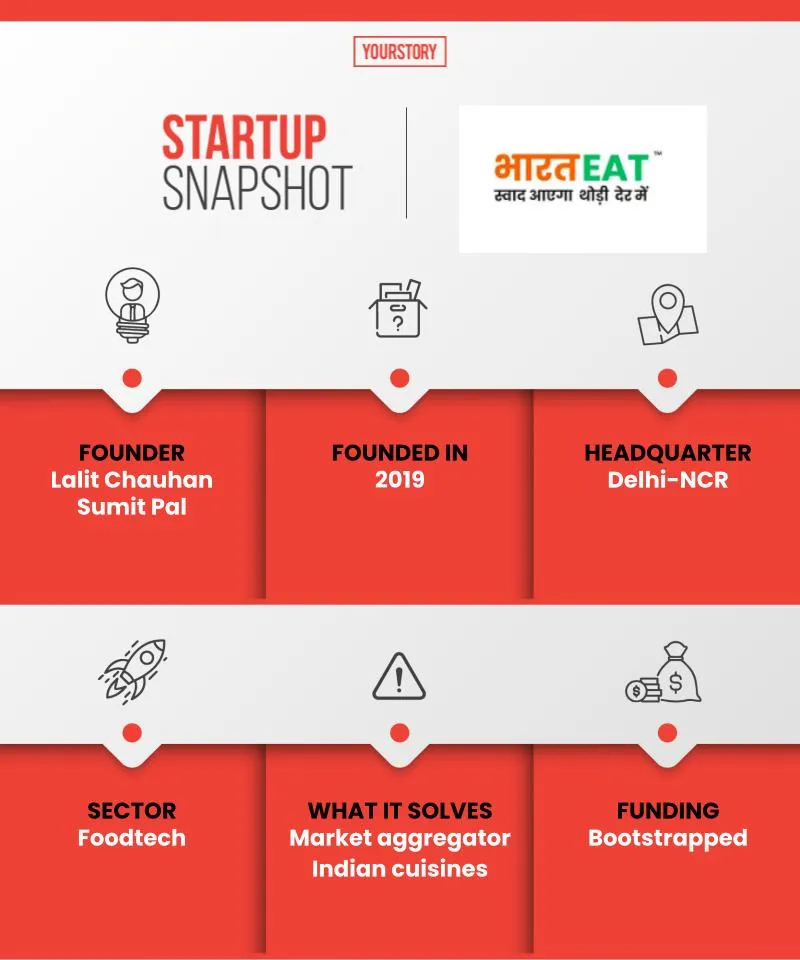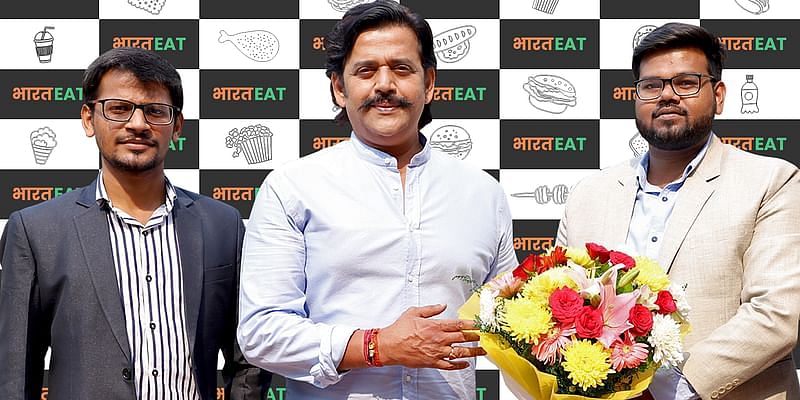We are all spoilt for choice. With the rise of multiple food aggregators in India, all one needs to do is open their favoured app, browse through the multiple choices, and order their favourite food.
Yet, ex-Google employee, Lalit Chauhan, felt there was a need for another food aggregator that focussed solely on varied Indian cuisine. Thus, he launched Bharat Eat in August 2019 in Delhi-NCR and started operations in September 2019.
“We intend to create a local food merchant network for India, and we are on a mission to make an Aatmanirbhar Bharat. Our first responsibility is to deliver food to the customer on time. As our name suggests, we pay more attention to Indian cuisine (desi food) — from gaon to shehar (from village to city) — giving old customers frequent offers. We also have a 90 percent discount offer for first-time users,” Lalit Chauhan, Co-founder of Bharat Eats, tells YS.
Delhi-based Bharat Eat focusses on a wider range of Indian cuisine, mostly from smaller Indian towns. Once Lalit had the idea of setting up Bharat Eat, he roped in his friend Nikhil Pal as the co-founder, who had earlier founded Startup Selfie.
Bharat Eat works like any other food aggregation platform. Here, customers can order food on either the startup’s website, its Android or iOS app. Upon payment confirmation, users are redirected to the order confirmation page, and they can track the order there.
“Tracking tree of the order shows all the information, including order received by the restaurant, order in preparation, order ready for delivery, order picked up by the delivery agent, and the order delivery confirmation,” Lalit explains.
On the merchant side, the order goes into the restaurant’s order management tablet app, where the staff can accept or deny the order with a note.
As soon as the restaurant staff accepts the order, it automatically goes to the nearest available delivery boy signed up on the system to pick the same. While the food is getting prepared, the assigned delivery partner reaches the outlet to pick the items.

Bharat Eat Team
Bringing the commission differentiator
Besides taking pride in serving Indian cuisines, Bharat Eat differentiates itself from other food aggregators with its modest commission rates.
“Other companies charge a very high commission rate — without any transparency, no timely payment, and high cancellation charge. However, we charge a minimum percentage and give an incentive of Rs 200 to every food merchant on completion of every 10th order. However, we also worked with no commission for one month,” says Lalit.
The foodtech startup also earns through restaurant promotions and dishes promotions based on location.
The average per food order size is between Rs 200 and Rs 400, where 25-30 percent of transactions are received online. In fact, the Delhi-based startup — which receives 250 to 300 orders daily — doesn’t charge a delivery cost on orders above Rs 700.
Bootstrapped since inception, Bharat Eat claims to have a revenue margin between 13 and 27 percent, which comprises restaurant promotions and commissions.
At present, the startup has close to 10,000 active users with 35,000 downloads on iOS and Android platforms. Lalit says that the startup has onboarded all top restaurants in Delhi on its platform.
“We are in talks with Bhojpuri Actor Ravi Kishan to onboard him as the brand ambassador of Bharat Eat,” Lalit shares.

The market and future plans
The Indian foodtech space is presently dominated by Swiggy and Zomato. The foodtech unicorns have seen close to 6X growth from 2017 to 2019. However, owing to the COVID-19 pandemic, they reported poor financial performance in FY20. In fact, funding in the foodtech sector has increased 35 times as compared to the same time period.
According to reports by Google and Boston Consulting Group, the Indian foodtech space is poised to grow at 25 to 30 percent to $8 billion by the end of 2022.
The segment is also known to be operationally intensive. From 2015 to 2020, there has been the rise and fall of several foodtech startups. Once touted as Swiggy’s competitor, Tiny Owl; Dazo, a platform focussed on delivering a curated menu of foods; Spoonjoy; and Foodpanda; among others, have fallen, owing to the intense competition in the sector.
Presently, there seems to be some consolidation in the foodtech space with Swiggy, Zomato, and Dunzo, each trying to grab a slice of the pie. Lalit, however, believes the market is vast, which provides an opportunity to focus on different areas.
He says, “We are working towards starting a new chapter of Bharat Eat. It will be a brand new franchise model with centralised support services, where a franchise owner uses our name with several percentage profits shares of the sales.”





![Read more about the article [The Turning Point] How lessons from the dot-com crash in 2000 helped Nazara Technologies become a Rs 5,000 Cr gaming company](https://blog.digitalsevaa.com/wp-content/uploads/2021/09/Feature-Images-0ii-1631177015760-300x150.png)




